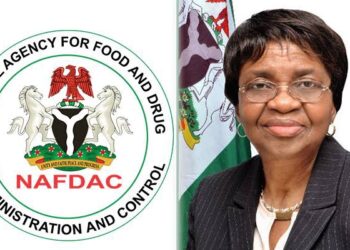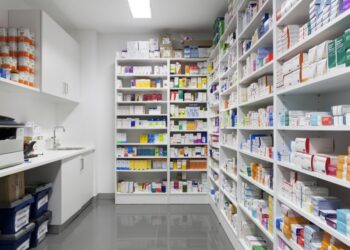The National Agency for Food and Drug Administration and Control (NAFDAC) has alerted the public to the circulation of falsified batches of Postinor-2 (Levonorgestrel 0.75mg) emergency contraceptive pills in Nigeria.
The agency received a report from the Society of Family Health (SFH), the Marketing Authorization Holder (MAH), confirming that certain batches were not imported by the company.
According to a statement shared on the agency’s website, NAFDAC hereby notifies the public of falsified Type 1 and 2 batches of POSTINOR 2 (Levonorgestrel 0.75mg) product in circulation.
How to identify counterfeit products
NAFDAC explained that the counterfeit products can be identified by noticeable differences.
“The font size of the text on the pin verification sticker appears smaller and has a wrong spelling of the word ‘Veify’ instead of ‘Verify on the fake; meanwhile, the text font on the sticker of the original appears bigger and more visible,” the agency stated.
It also noted that there is also a wrong spelling behind the pack of the fake ‘Distnibuted in Nigeria’ instead of ‘distributed in Nigeria’.
Postinor-2 (Levonorgestrel 0.75mg) is a brand of emergency contraceptive pill (ECP) containing the active ingredient levonorgestrel.
Product details to verify authenticity
NAFDAC has provided specific details to help the public distinguish between authentic and falsified Postinor-2 products.
The original Postinor-2 bears the batch number T32458H, was manufactured in February 2023, and is set to expire in February 2027, with NRN number 04-6985.
Counterfeit Type 1 products carry batch number T36184B, were manufactured in August 2024, and will expire in August 2028, sharing the same NRN number.
Meanwhile, Counterfeit Type 2 products are marked with batch number 332, manufactured in March 2023, and expiring in February 2027, also with NRN number 04-6985.
These details are crucial for consumers and healthcare providers to verify the authenticity of Postinor-2 products in circulation.
Health risks of falsified Postinor-2
NAFDAC emphasized that falsified products pose serious risks to health due to the potential presence of incorrect, substandard or harmful ingredients, improper dosages of levonorgestrel, and a lack of sterile manufacturing conditions, poses significant risks to individual health and public safety.




“The risks of administering falsified Postinor 2 (Levonorgestrel 0.75mg) include failure of contraceptive effect, toxic or harmful contaminants, unpredictable side effects, delayed or missed opportunity for genuine emergency contraception, and potential long-term reproductive health impact.
“Unexpected side effects: Unknown substances can trigger allergic reactions, organ damage, or death,” the agency warned.
NAFDAC further warned that counterfeit medicines are unregulated, untested, and illegal, making their safety and efficacy impossible to guarantee.
“Patients should only obtain Postinor-2 from verified pharmacies or licensed healthcare providers,” the agency advised.
More insights
While investigations are still ongoing regarding the source of the falsified product, All NAFDAC zonal directors and state coordinators have been directed to carry out surveillance and mop up the falsified product of type 1 and 2 postinor 2 (Levonorgestrel 0.75mg) within the zones and states.
Distributors, retailers, healthcare professionals, and caregivers are advised to exercise caution and vigilance in the supply chain to prevent the distribution, sale, and use of falsified products.
- The agency stressed that all medical products must be obtained from authorized/licensed suppliers. The products’ authenticity and physical condition should be carefully checked.
- Healthcare professionals and consumers are advised to report any suspicion of the sale of substandard and falsified medicines or medical devices to the nearest NAFDAC office, NAFDAC on 0800-162-3322 or via email: sf.alert@nafdac.gov.ng
Similarly, healthcare professionals and patients are also encouraged to report adverse events or side effects related to the use of medicinal products or devices to the nearest NAFDAC office, or through the use of the E-reporting platforms available on the NAFDAC website www.nafdac.gov.ng or via the Med- safety application available for download on android and IOS stores or via e-mail on pharmacovigilance@nafdac.gov.ng
NAFDAC confirmed that this notice will also be uploaded to the World Health Organization’s Global Surveillance and Monitoring System (GSMS).



















